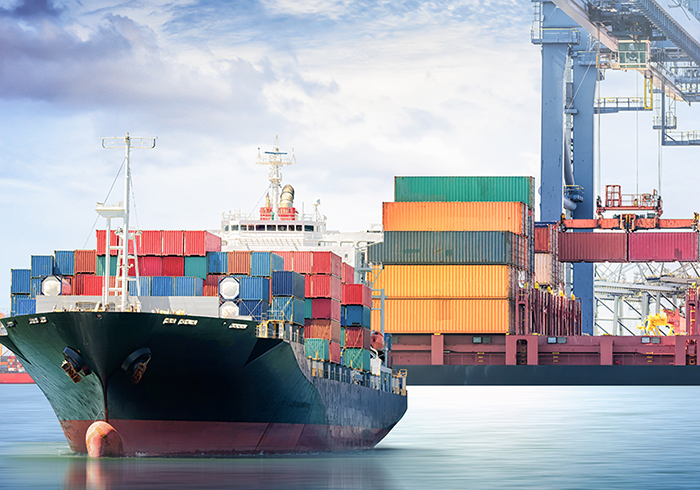Global maritime trade growth is expected to stall in 2025 due to increased uncertainty and higher costs, a new UN Trade and Development (UNCTAD) report reveals.
Geopolitical tensions, shifting trade policies, climate change and regulatory developments are redrawing shipping routes and driving up costs for businesses, according to the UNCTAD’s Review of Maritime Transport 2025 report, with seaborne trade volumes expected to rise just 0.5% this year – a sharp decline from the 2.2% growth rate in 2024.
Volatile freight rates caused by disruptions in key trading routes such as the Red Sea and the Strait of Hormuz, port congestion, geopolitical tensions and shifting trade policies, are all taking a toll on maritime trade, which largely experienced steady growth in the previous two years.
Global shipping moves over 80% of the world’s merchandise trade, but long-distance rerouting caused by geopolitical tensions – from conflict in the Middle East to US tariffs – has increased tonne-miles metrics by around 6% and pushed up costs for businesses.
While UNCTAD’s trade logistics branch chief, Regina Asariotis, declined to blame the trade slowdown on the US imposition of tariffs on key trading partners, she agreed the “raft of measures initiated by the Trump organisation” followed by retaliatory duty fees from other countries had brought turbulence to the shipping sector.
The “constantly shifting” nature of the current tariffs landscape, which was “very difficult to keep up with”, also resulted in higher costs for businesses, she said during a press conference in Geneva on September 24.
In addition to tariffs, the US and several trading partners have also recently announced more policy measures, including new port fees and targeted restrictions on port calls in the US by foreign-built or foreign-operated vessels, all of which are set to further affect shipping costs and routes, the UNCTAD report warns.
Persistently high transport costs risk hitting developing countries hardest, UNCTAD suggests, calling for “targeted measures to mitigate transport cost increases, strengthen port performance, advance trade facilitation and improve predictability in trade policies”.
Congested ports need to invest in “cleaner, more efficient operations”, the organisation says: “Digital systems such as maritime single windows and port community systems are helping some countries cut costs and delays, but many developing economies still lag.”
UNCTAD urges governments to implement global commitments on trade facilitation and automation, and to expand public-private partnerships in port operations.
Meanwhile, the report also stresses the need for the sector to accelerate fleet renewal and promote sustainable ship recycling to meet climate goals.
Shipping emissions rose 5% in 2024, and only 8% of the world’s active fleet tonnage is equipped for alternative fuels, underscoring the need for urgent change.
However, UNCTAD warns that decarbonising maritime transport will involve “significant costs, including fleet renewal, port adaptation and alternative fuel infrastructure”, and called for “clear regulatory signals, greater investment and cooperation among governments, industry and financial actors” to drive the transition.







